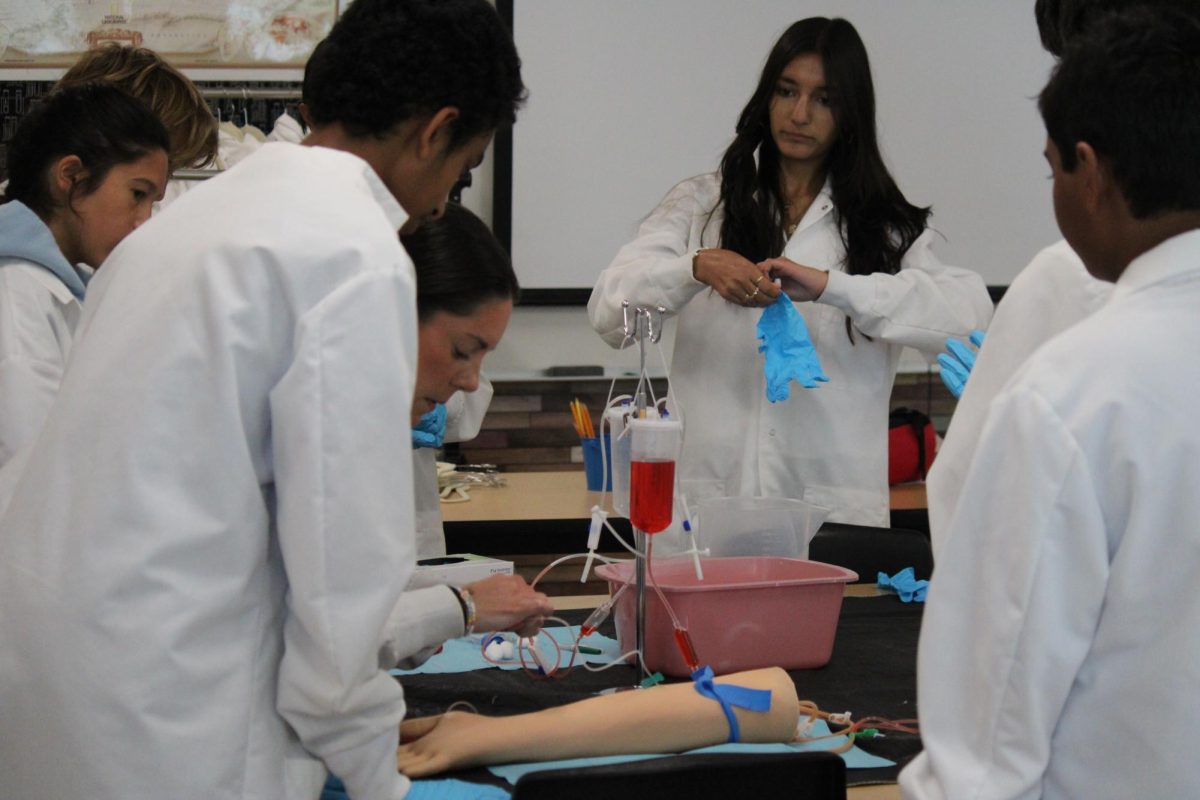After a six-year self-evaluation period, Westview was visited by the Western Association of Schools and Colleges (WASC), Feb. 3-5.
WASC is a nonprofit organization that nationally accredits public and private educational institutions. Accreditation is granted to schools that provide their students with high-quality education and exhibit constant self-improvement. This process is vital to all schools as it recognizes them as credible and reliable institutions, enhances their reputation, and ensures that all diplomas hold value for higher education or employment.
The WASC Committee last granted Westview a six-year accreditation in 2019, as well as noted a few areas for improvement. In between WASC reviews, Westview’s staff has been working on incorporating the WASC Committee’s notes on campus. For the last year and a half, the staff has worked together to create a self-study report, evaluating Westview’s strengths and areas for improvement using the WASC agency’s five areas of assessment: organization, teaching and learning, curriculum, assessment, and culture. Assistant Principal Shannon Parker said that the self-study is audited by WASC members, who certify that the school has done a detailed self-evaluation.
“We’ve broken out into focus groups as a staff, and we’ve had conversations around what we are doing well, and what we need to get better at,” Parker said. “This culminated in a final report that we sent to the WASC agency. They then sent a team out here to affirm the report, confirming that we did a thorough self-study.”
The last WASC committee appreciated Westview’s strong commitment to learning, good focus on inclusion and equity, and shared leadership model. Parker said that WASC acknowledged Westview’s efforts to add more academic and emotional support for students. However, there was a need for more effective teacher professional growth.
“The previous committee told us to work on developing our Professional Learning Community (PLC) which is teacher professional growth, when teachers come together to talk about instructional practices,” said Parker. “WASC wants us to continue developing those, especially through using data and making decisions based on it.”
The last WASC committee wanted Westview to focus on improving the effectiveness of PLCs in order for students to receive uniform instruction. This includes ensuring that grading standards, instructional planning, and assessment design are transparent and consistent within each teaching department. To better enforce these standards, Westview’s staff plans on following a protocol of encouraging effective Professional Growth Days, understanding and utilizing student data from CAASP scores, A-G completion rates, graduation rates, English Learner Data, and attendance rates.
Westview’s improvement in incorporating more academic and emotional support in recent years has prompted the WASC committee to request that further evaluation be done to see if the support systems are effective. This includes taking data from student homeroom surveys, staff observations, and parent input from Principal’s Coffee Chats and the School Site Council.
“Last year we hosted a student forum on a Wednesday morning for all Homeroom senators, club leaders, athletic leaders, and anybody who wanted to come in and give us feedback,” Parker said. “We had about 50 students show up that morning. There were five posters of the five areas around the room, and they put their feedback on these posters.”
Nila Pillai (11) was present at this meeting and said that many students had positive feedback surrounding the provided support.
“The meeting helped me see that other people were thinking the same things I was, so from an ASB perspective, it was a good way to gauge what other students were thinking,” she said. “A lot of people were talking about how our academic department does a really good job of preparing us for more than just passing the class, like AP tests or higher education in the future.”
In preparation for this WASC visit, Westview’s staff met to discuss the most recent and overarching concerns surrounding our school and came up with two main goals. Parker said that the two goals were on student belonging and support for underperforming student groups, as teachers have observed an increase in students lacking the support they need to succeed academically.
“We want to strengthen student engagement and well-being through school connection programs and mental health supports, and we want to refine some academic interventions to support some of our underperforming groups,” Parker said. “We have some students on our campus who are not necessarily performing to the best of their ability. So we want to get a little bit more clear on our academic interventions in and outside of the classroom for those underperforming groups.”
The final WASC accreditation status will be released in the coming months, but Westview’s staff plans to continue using PLC time to analyze student data, plan targeted student interventions, and rework instructional strategies in order to help all student groups and create a greater sense of belonging on campus.





![Siddhi Bhavsar (10) [left] and Riddhi Bhavsar (10) [right] carry the NJROTC flag, Sept 13. The annual Poway Rotary Parade gave the unit the chance to represent Westview.](https://wvnexus.org/wp-content/uploads/2025/09/DSC00628-1200x900.jpg)
